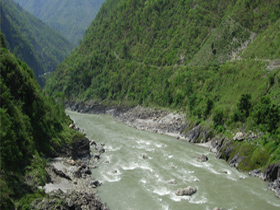Water experts at a workshop in the city on Friday emphasized strengthening regional cooperation and sharing knowledge and experience to address water problems in the South Asian countries.
It is imperative to have regional cooperation for river basin management targeting for food security, energy security, environmental sustainability, adaptation to climate change, they said at the inaugural session of the workshop.
Institute of Water Modelling (IWM) in association with the Bangladesh Water Partnership (BWP) organised the two-day regional workshop at BRAC Centre Inn in the capital.
The purpose of the workshop is to share lessons, knowledge and experiences for best utilisation of available water resources in the South Asia deltaic region under impending climate impacts.
Water Resources Minister Barrister Anisul Islam Mahmud, Water Resources secretary Dr Zafar Ahmed Khan, director general of Bangladesh Water Development Board Shahidur Rahman, and IWM executive director Dr Monowar Hossain and its deputy executive director Dr AFM Afzal Hossain, among others, spoke at the inaugural session. BWP president Shahidul Hassan presided.
Speaking as the chief guest, Anisul Islam Mahmud said no country can resolve the water problems alone. So, all countries should share their experience and knowledge to manage the water related issues in South Asia.
He said the three major rivers of the region — Ganges, Brahmaputra and Meghna – have created Bangladesh.
The Ganges, Brahmaputra and Meghna rivers discharge about two million tons of siltation in the Bay of Bengal each year, he said, adding that deforestation in the upper countries pushes tremendous siltation.
The Water Resources Minister said: “Without managing the silt, we can not manage our water in Bangladesh…unless we’re careful about our water and water management, we can not ensure our food security.”
He stressed the need for sharing data related to water of common rivers aiming to help each other address water problems in the region.
“Data sharing is very crucial to water management in the region…we have 54 transboundray rivers. As a lower riparian, we can not manage our water without raw data of neighbouring countries,” he said.
IWM executive director Dr Monowar Hossain said that over population in South Asia is a serious problem in recent time and this result in severe stress on natural resources management as climate change has become a major concern.
He said that reducing poverty, hunger and developing the economic footing through effective water resources management in the Deltas of South Asia require approaches that are effective for poor households, and operate at river basins to stakeholder scales and across country boundaries.
Monowar said that during its two-day deliberations, the regional workshop is set to discuss, identify, explore, formulate and promote evidence for policy formulation and implementation processes of improved water resources management issues in the South Asia.
Source: UNBConnect










